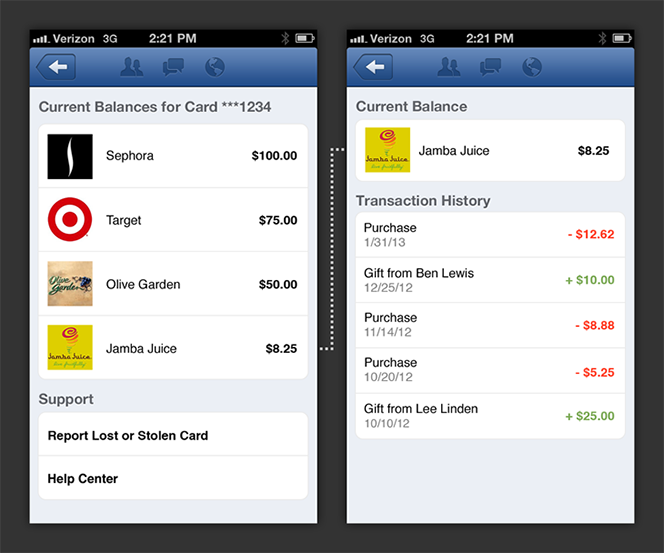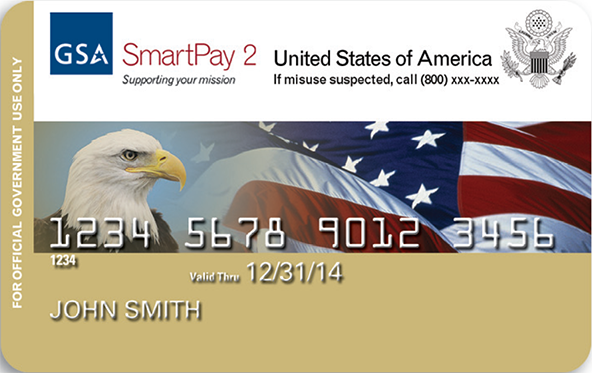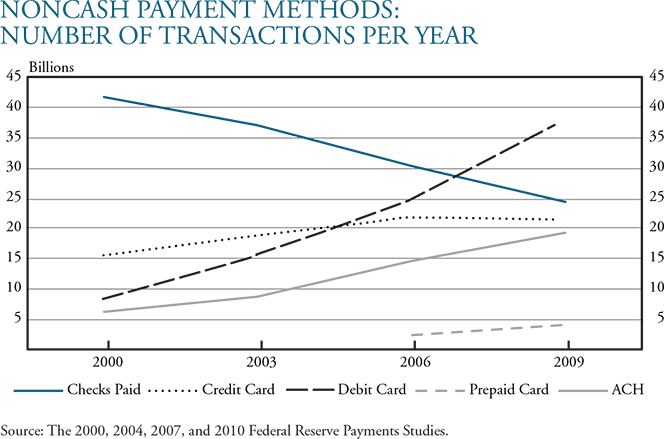Facebook’s Gift Card: Underwhelming and Complicated

You may have heard by now that Facebook has waded into the gift card market by launching the imaginatively called Facebook Card. The social network claims that its latest payment offering is a “new type of gift card”, just the gift to get a friend excited. But then, Facebook will say that, won’t they?
Well, I looked at the card and didn’t see anything all that new in it. It is a garden-variety closed-loop prepaid card. In other words, it can only be used at specific retailers, rather than at all merchants, which accept card payments. The card’s twist is that, whereas most other closed-loop cards can only be used at one merchant, Facebook’s can be used at four different ones (and in a complicated way at that). Even though this is probably nothing more than an experiment, for a company aiming for global domination, it is still quite an underwhelming effort.
One Card with Four Sub-Accounts
You can select the new card as a gift for one of your Facebook friends from your account’s Gift Cards & Digital category. Then you choose the amount to be loaded onto the card and complete the purchase. Your friend will receive the card in the mail within a few days of the transaction. The card can then be used at Jamba Juice, Olive Garden, Sephora, and Target. But it turns out that the card’s balance is actually split among the four retailers, as Facebook explains:
Your card can hold multiple gift balances, and each balance is dedicated to the retailer associated with the gift. For example, you might have gift balances of $100 at Sephora, $75 at Target, $50 at Olive Garden, and $8.25 at Jamba Juice.

So you would actually have four sub-accounts under the main one, which seems to be complicating matters, without showing any apparent advantages. It creates the possibility that you may not be able to use your card at one of the four supported retailers, even if you have available balance, just because that balance can only be used at one or more of the other merchants. Why would Facebook do that? One possible explanation is that there really are four separate gift card accounts under the Facebook umbrella, each one of them managed jointly with the respective retailer. But if that were the case, wouldn’t it have been better to simply offer four separate gift cards?
The Facebook card is a reloadable one, so every time you get a new gift card, its balance will be added to your existing account. Presumably, a cardholder would be able to decide how to split up the new amount at the time she receives it in her account.
No Fees, No Expiration
I wasn’t able to locate a full terms and condition sheet, but the Facebook-provided image of the back of the card tells us that “[n]o fees apply, funds don’t expire, expired card replaced on request”. Funds cannot be redeemed for cash, we are told, and the card is only valid in the U.S. So it sounds as if Facebook is giving us a fee-free card, which is exactly what I would have expected.
The Facebook card is issued by Sutton Bank, a very small bank with approximately $350 million in assets (according to American Banker), located in Attica, Ohio. Transactions are processed on Discover’s payment network, as indicated by its logo located on the back of the card. And that brings us to the closed-loop character of the product. The card would have been a much more consumer-friendly product if it had been accepted anywhere Discover cards were supported. I, for one, never go to any of the four merchants associated with the program, so even if I received one as a gift, I would probably never have used it. So Facebook could have done much better than that.
The Takeaway
 The aforementioned American Banker piece reminds us of Facebook’s payments-related ambitions. As the author says, last year the social network generated $810 million, or close to 16 percent of its total revenue, from “payments and other fees”, up by 45 percent from the $557 million it collected in 2011. The “payments and other fees” totals for 2010 and 2009 were $106 million and $13 million. So payment revenues have been growing at quite a fast rate and are already making up a substantial portion of the social network’s total revenue. Facebook would doubtless want to keep the growth rate as high as possible and the new gift card is one of the products they are experimenting with to help them achieve this goal. As one of the experts quoted by the American Banker puts it:
The aforementioned American Banker piece reminds us of Facebook’s payments-related ambitions. As the author says, last year the social network generated $810 million, or close to 16 percent of its total revenue, from “payments and other fees”, up by 45 percent from the $557 million it collected in 2011. The “payments and other fees” totals for 2010 and 2009 were $106 million and $13 million. So payment revenues have been growing at quite a fast rate and are already making up a substantial portion of the social network’s total revenue. Facebook would doubtless want to keep the growth rate as high as possible and the new gift card is one of the products they are experimenting with to help them achieve this goal. As one of the experts quoted by the American Banker puts it:
They are just trying stuff out. I don’t think that they really worked out what they want to be when they grow up.
Still, though, Facebook could and should have done much better than that.
Image credits: Facebook.com.


